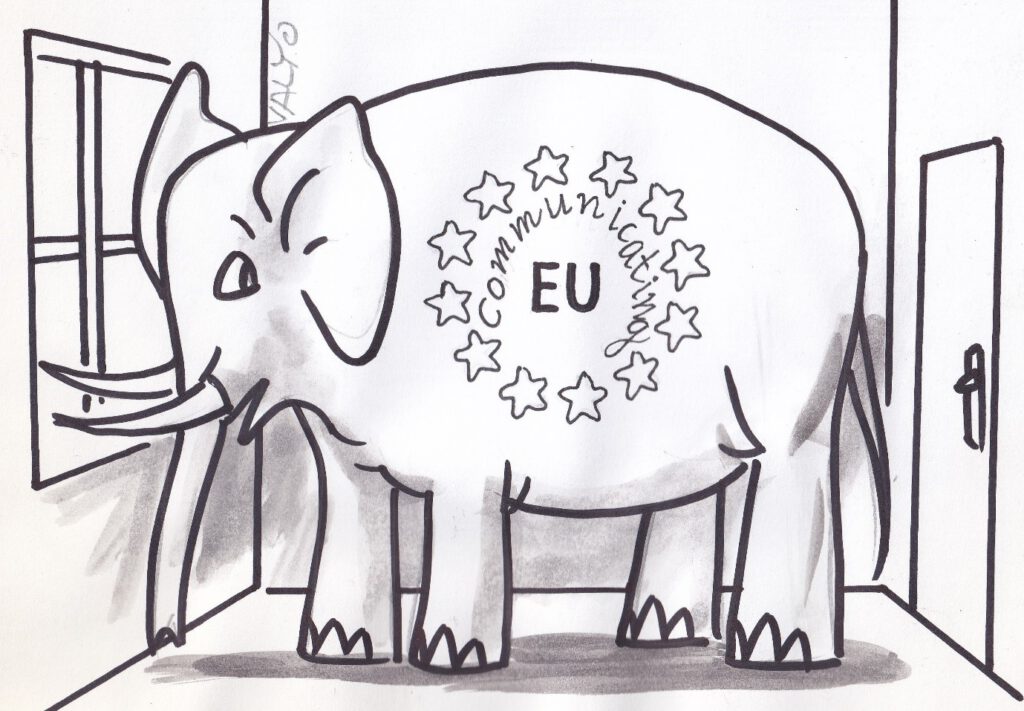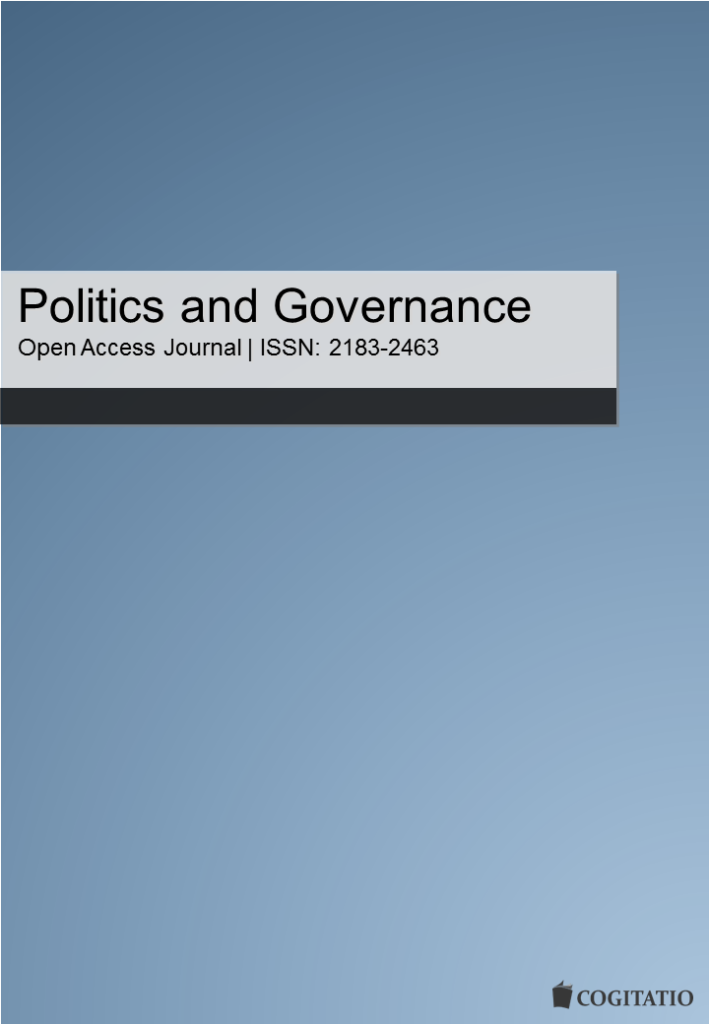A number of recent academic publications emphasise new avenues of inquiry related to strategic (in)visibilities in EU decision making.

Two recent academic publications and a special issue address aspects of government communication and transparency of EU policy making and politics. These publications signal a shift in attention to new areas of inquiry touched by questions of strategic visibility and concealment.
Informal migration deals
This article by Mauro Gatti of the University of Bologna addresses the transparency of informal deals with third countries, such as the controversial ‘EU-Turkey deal’ to curb immigration into the EU. It appeared as a chapter in an edited volume on the wider phenomenon edited by Eva Kassoti and Narin Idriz.
Abstract: Transparency is a democratic principle and a fundamental right in the European Union. The openness of public institutions is expected to foster the participation of citizens in decision-making and to increase the legitimacy of the administration. However, transparency is not always ensured in the external dimension of the EU migration policy. This sector is increasingly characterised by informal ‘deals’, including nonbinding instruments entered into by EU institutions and arrangements made by the Member States but implemented by the Union. These instruments and the preparatory documents related to them are frequently not published. Moreover, individuals may have difficulty obtaining access to unpublished documents related to migration deals, especially in light of the case law.
Frontex and securitization communication
This article in the Utrecht Law Review was authored by Mariana Gkliati (Radboud University) and Jane Kilpatrick of the NGO Statewatch and addresses public communication strategies of the EU agency Frontex, and their implications from the perspective of transparency and accountability. The article forms part of a series of publications on Frontex, including an article published on this blog.
Abstract: Crisis-driven EU policy in recent years fits within a securitisation narrative, in which the claim of public security threat outweighs fundamental rights and their accountability safeguards. Under this policy development, Frontex, the EU Border and Coast Guard Agency, has experienced an impressive expansion in its powers and competences, without the equivalent enhancement of accountability safeguards. This article focuses in particular on the issue of transparency as a fundamental right and an element of social and political accountability. Specifically, it examines how lack of transparency in complex multi-actor structures, such as Frontex joint operations, can result in gaps in accountability and impact the enforcement of basic fundamental rights of EU citizens and migrants. Using a conceptual perspective of accountability and securitisation, and highlighting specific gaps in transparency in the context of Frontex joint operations, this article aims to show how the lack of transparency has been determined by the situation of emergency and has continued to remain unaddressed due to a constant state of institutional emergency, feeding back into the perpetuation of the securitisation narrative.

Strategic political communication through social media
Analyzing Citizen Engagement with European Politics Through Social Media
This special issue, edited by Pieter de Wilde, Astrid Rasch (both Norwegian University of Science and Technology), and Michael Bossetta (Lund University), appeared open-access in Politics and Governance. It approaches debate about EU politics from the angle of social media communication and predominantly from the perspective of the public of information consumers and citizens. However, two publications focus on the strategic use of EU-level actors themselves in communicating about EU politics on social media platforms.
A Bird’s Eye View: Supranational EU Actors on Twitter
By Sina Özdemir (Norwegian University of Science and Technology) and Christian Rauh (WZB Berlin)
Abstract: Given the politicization of European integration, effective public communication by the European Union (EU) has gained importance. Especially for rather detached supranational executives, social media platforms offer unique opportunities to communicate to and engage with European citizens. Yet, do supranational actors exploit this potential? This article provides a bird’s eye view by quantitatively describing almost one million tweets from 113 supranational EU accounts in the 2009–2021 period, focusing especially on the comprehensibility and publicity of supranational messages. We benchmark these characteristics against large samples of tweets from national executives, other regional organizations, and random Twitter users. We show that the volume of supranational Twitter has been increasing, that it relies strongly on the multimedia features of the platform, and outperforms communication from and engagement with other political executives on many dimensions. However, we also find a highly technocratic language in supranational messages, skewed user engagement metrics, and high levels of variation across institutional and individual actors and their messages. We discuss these findings in light of the legitimacy and public accountability challenges that supranational EU actors face and derive recommendations for future research on supranational social media messages.
Empowering the People’s Truth Through Social Media? (De)Legitimizing Truth Claims of Populist Politicians and Citizens
By Michael Hameleers (University of Amsterdam)
Abstract: Right-wing populists have allegedly fueled increasing levels of distrust regarding expert knowledge and empirical evidence. Yet, we know little about how right-wing populist politicians and citizens use social media to construct and oppose truth claims. Using a qualitative analysis of Twitter and Facebook posts communicated by right-wing populists and citizens supporting populist ideas in the Netherlands, this article offers in-depth insights into processes of legitimization (confirming truth claims) and de-legitimization (opposing truth claims). The main conclusion is that right-wing populists and citizens supporting populism do not share a universal way of referring to reality. They use social media to communicate a confirmation-biased reality: Expert knowledge and evidence are de-contextualized or reinterpreted and aligned with right-wing populist agendas. References to the people’s experiences and worldviews, conspiracy theories and crisis sentiments are used to legitimize people’s opposition to expert knowledge and empirical evidence. Based on these findings, we coin the idea of an “adaptable construction of confirmation-biased truth claims” central in right-wing populist interpretations of reality. In times of increasing attacks on expert knowledge and empirical evidence, populist discourse may fuel an antagonism between the ordinary people’s experiences and the truth claims of established media channels and politicians in government. Social media offer a platform to members of the public to engage in discussions about (un)truthfulness, perceived deception, and populist oppositions—potentially amplifying divides between the ordinary people’s experiences and expert sources.



